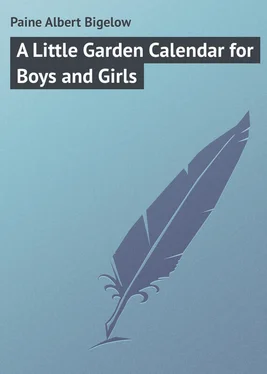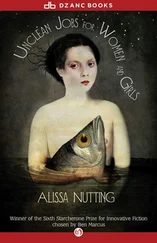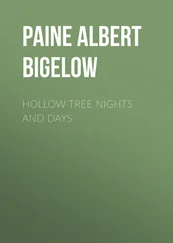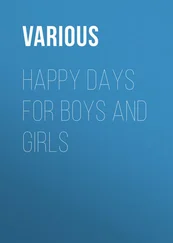Albert Paine - A Little Garden Calendar for Boys and Girls
Здесь есть возможность читать онлайн «Albert Paine - A Little Garden Calendar for Boys and Girls» — ознакомительный отрывок электронной книги совершенно бесплатно, а после прочтения отрывка купить полную версию. В некоторых случаях можно слушать аудио, скачать через торрент в формате fb2 и присутствует краткое содержание. ISBN: , Жанр: foreign_prose, на английском языке. Описание произведения, (предисловие) а так же отзывы посетителей доступны на портале библиотеки ЛибКат.
- Название:A Little Garden Calendar for Boys and Girls
- Автор:
- Жанр:
- Год:неизвестен
- ISBN:http://www.gutenberg.org/ebooks/48063
- Рейтинг книги:3 / 5. Голосов: 1
-
Избранное:Добавить в избранное
- Отзывы:
-
Ваша оценка:
- 60
- 1
- 2
- 3
- 4
- 5
A Little Garden Calendar for Boys and Girls: краткое содержание, описание и аннотация
Предлагаем к чтению аннотацию, описание, краткое содержание или предисловие (зависит от того, что написал сам автор книги «A Little Garden Calendar for Boys and Girls»). Если вы не нашли необходимую информацию о книге — напишите в комментариях, мы постараемся отыскать её.
A Little Garden Calendar for Boys and Girls — читать онлайн ознакомительный отрывок
Ниже представлен текст книги, разбитый по страницам. Система сохранения места последней прочитанной страницы, позволяет с удобством читать онлайн бесплатно книгу «A Little Garden Calendar for Boys and Girls», без необходимости каждый раз заново искать на чём Вы остановились. Поставьте закладку, и сможете в любой момент перейти на страницу, на которой закончили чтение.
Интервал:
Закладка:
Then Prue was very quiet for a minute, thinking. By and by she asked:
"And do you think I will have flowers for Davy's birthday? Davy can just pick his lettuce and radishes any time. My 'sturtiums and pansies are as big as his things, but I have to wait for them to bloom."
"Why, that's so, Prue." The Chief Gardener went over to her pansies and looked at them very closely, but if he saw anything he did not speak of it. "Oh, well," he said, "if you don't have flowers for Davy's birthday, maybe you will for mine. It comes in March, too, you know. And then it's ten days yet till Davy's, and you never can tell what will happen in ten days."
Alas, this was too true. It got quite warm during the second week of March, and the fire in the furnace was allowed to get low. Then one night it suddenly turned cold – as cold as January.
"Oh, what makes some of my pea leaves look so dark?" asked Davy, as they stopped in the icy sitting-room for a moment, before hurrying through to the warm dining-room, where a big open fire was blazing.
The Chief Gardener shook his head, rather solemnly.
"I'm afraid they are bitten a little by Jack Frost," he said.
"Oh, mine are all dark, too," whispered Prue, sorrowfully. "I am going to take them right out to the dining-room fire, and warm them."
"And that would be the very worst thing you could do," said the Chief Gardener. "Let them stay right where they are, and we will heat the room slowly by opening the register just the least bit at a time, and draw the shades to keep out the sun. Perhaps if we do that the frost will come out so gently that the plants will not be killed. If you should warm them quickly they would be very apt to die, or at least to be badly injured."
So they did as the Chief Gardener said, and kept the sitting-room quite cool all day. Then by another day the pease and all the others looked about as well as ever, only a few of the tenderest leaves withered up and dropped off because Jack Frost had breathed harder on these than on the others. As for the radishes and lettuce and pansies, they hadn't minded it the least bit, for they can stand a good deal of cold, and the corn and sunflower and nasturtiums didn't lose any leaves, so, perhaps, they didn't care for a touch of frost either.
II
THE SUN SWINGS LIKE A GREAT PENDULUM
And now with each day there was brighter sunshine that came earlier and stayed longer. From a high east window they saw the sun rise each morning, when it was bright weather, and when they happened to be awake in time, and they saw how the big red ball crept farther and farther to the north, along the far fringe of trees, beyond all the houses which they could see.
"It rose away down beyond that little white house on Christmas morning," said Davy, who was always up early. "I remember very well. Now it's got past the tall pine by the red barn. How much farther will it go?"
The Chief Gardener pointed to a dim pencil-mark on the window-sill.
"That was the angle of the shadow," he said, "on the twenty-first of June, and points to just where the sun will rise on the longest day of the year. You will have to be up very early to see it on that day." He pointed to another faint line. "That," he said, "was the angle on the twenty-first of December, the shortest day. The sun swings like a great pendulum from one point to the other and gives us winter and summer, and all the seasons between. Half-way between these marks is due east, and there the sun will rise on the twenty-first of March, which is the first day of spring."
"Do you think our garden things are looking at it, and wishing it would hurry and get farther toward the June mark," said little Prue.
"I think they are," the Chief Gardener answered. "They don't have eyes, as we have, but they have a way of seeing the sun, and of knowing just where it is, for most of them turn toward it as they grow, and some of them follow it all the way across the sky, from morning until night, and then turn back and wait for it to rise again. Your sunflower would do that, Prue, if it were out under the open sky."
"Oh, it does now. I mean it looks toward the sun in the morning, with its top leaves, and keeps them turned toward it as far as it can."
"So you have noticed that, have you? Well, I'm glad, for I have read in books – books written by very wise men – that the sunflower did not really do this, but that it was just an old fable. I think those wise men, perhaps, never saw the wild western sunflowers, but only the big tame ones that have heavy, coarse stems and are so big and clumsy and fat that they couldn't well turn, even if they wanted to. I have seen whole fields of wild sunflowers – little ones like yours, and long before they were in bloom – with every stem bent toward the sunrise, when there was not a breath of wind blowing; and I have seen the same flowers straighten their little stems as the sun rose higher, and then bend them again to the west in the evening; and the little bend would be so tight and firm that you could hardly straighten the stalk without breaking it. Very wise men make mistakes sometimes, mistakes that even a little girl would not make, just because they have not happened to see something which a little girl with sharp eyes has seen and thought about. It is a wonderful and beautiful sight on the prairies of the West to see miles of wild sunflowers in full bloom. They are like a great sea of gold, and in the early morning, when the air is still, every bloom is faced toward the sunrise, as bright and fresh and faithful as the sun itself."
"I should think there would be a story about the sunflower," said Davy, half speaking to himself.
"Oh, there have been many stories about it, Davy. After breakfast I will try and remember the one I like best."
So then they hurried down to the dining-room, pausing just long enough to see that the garden was all safe, and to notice that the upper leaves of Prue's sunflower were really faced so far to the sun that there was a sharp little crook in the stem, then out to the big dining-room fire, for the fragrant breakfast that was waiting, and back to the library fire for the story that was to be told.
III
LONG BEFORE THERE WERE ANY RAILROADS AND CITIES
"Once upon a time – "
"Oh," said Prue, "once upon a time – I just love 'once upon a time.'"
"Yes," nodded Davy, solemnly, "and once upon a time there was a little girl who couldn't keep still so that her Papa could tell a story."
Prue snuggled down, and the Chief Gardener began all over.
"Once upon a time, long before there were any railroads, and cities such as ours, long before Columbus ever sailed over the ocean to a new world – when all this great wide country, as you know, was held by Indians, who hunted and fished, and made war sometimes, when they had disputes – there lived away in the far West two very friendly tribes. Their lands joined and they hunted together, and when one tribe was at war the other joined in and helped to fight the enemy. So they became almost as one tribe and their children grew up together.
"Now, in one tribe there was a little Indian boy, a chief's son, who was very fond of a little Indian girl of the other tribe. Their mothers had always been great friends, and often for a whole day at a time the little Indian boy and girl played together, and as they grew up they cared for each other more and more, and the Indian boy, Ahlogah, said that when he was older and a chief he would make the little Indian girl, Laida, his wife.
"But it happened that in Laida's tribe there was also a chief's son, a jealous-hearted and cruel boy that Laida did not like. But this boy cared for Laida, and like Ahlogah made up his mind that some day she should be his wife.
"So they all grew up, and Ahlogah and Laida loved each other more dearly every day, and Kapoka, the other youth, grew more jealous and more cruel-hearted. And when one day his father died, and he became chief of his tribe, he said that if she did not give up Ahlogah, he would make war on Ahlogah's tribe.
Читать дальшеИнтервал:
Закладка:
Похожие книги на «A Little Garden Calendar for Boys and Girls»
Представляем Вашему вниманию похожие книги на «A Little Garden Calendar for Boys and Girls» списком для выбора. Мы отобрали схожую по названию и смыслу литературу в надежде предоставить читателям больше вариантов отыскать новые, интересные, ещё непрочитанные произведения.
Обсуждение, отзывы о книге «A Little Garden Calendar for Boys and Girls» и просто собственные мнения читателей. Оставьте ваши комментарии, напишите, что Вы думаете о произведении, его смысле или главных героях. Укажите что конкретно понравилось, а что нет, и почему Вы так считаете.












